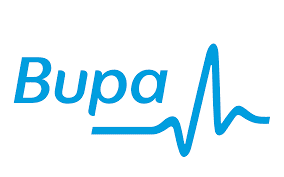FROZEN SHOULDER
Sam Sarkar MSc. Chartered Physiotherapist at Freedom Care Clinics, Manchester
What is a Frozen Shoulder?
Frozen Shoulder, also known as adhesive capsulitis, is a condition that leads to pain and stiffness in your shoulder. It is a very common condition, affecting 1 in 12 men and 1 in 10 women of working age. Considered to be an inflammatory condition of the capsule of the shoulder joint which initially presents as intense pain in the shoulder and gradual loss of range of movement in the shoulder. It typically develops over months and is typically said to have three stages:
- Freezing stage: This is the first stage, marked by increasing pain in shoulder and upper arm with the shoulder slowly starting to become stiffer. When you try to move your shoulder or at night, the discomfort is usually severe.
- Frozen stage: This is the second stage and is the most painful. The shoulder becomes even stiffer and starts hindering your daily activities like putting your jacket on, combing your hair or reaching for the seatbelt. The pain starts to plateau in this stage.
- Thawing stage: This is the final stage of the disease. Both pain and stiffness gradually improve and the shoulder starts to return to its normal state, but some patients never regain full mobility of the shoulder.
What causes Frozen Shoulder?
The exact cause for why a frozen shoulder develops is still unknown, although some risk factors have been identified such as age and gender (more common between ages 45-60 and in women over men), diabetes, post-injury or any trauma to the shoulder, hypothyroidism, etc.

How can Physiotherapy at Freedom Care Clinics, Manchester help in Frozen Shoulder?
While frozen shoulder is considered to be a self-limiting disease, it can be a very long and painful course (18 months to 2 years) at the end of which you might also not gain your full mobility back. Surgery may also be an option, it may not be cost-effective for most people and it carries its own risks. Latest evidence suggests that in a year’s time, surgical procedures were not any superior to physiotherapy in treating frozen shoulders. Most clinical guidelines suggest starting physiotherapy as early as possible to mitigate symptoms and maintain the range of motion in the shoulder. Typically, it can take anywhere between 3-6 weeks for you to start noticing an improvement.
At Freedom Care Clinics Manchester, we provide a comprehensive approach designed to alleviate pain, restore range of motion, and improve shoulder function in frozen shoulders. You will be provided a range of treatments and support to best manage your symptoms:
- Manual Therapy: A hands-on approach to relieve the tension in the muscles around the shoulder joint to improve symptoms.
- Mobilisations: Passive movement of the joint within the limits of your pain to increase movement and reduce stiffness.
- Exercise Therapy: A range of physical activities designed to improve strength and flexibility to aid in your recovery.
- Extra-corporeal shockwave therapy: It is a non-invasive treatment that uses acoustic waves to stimulate healing in injured tissues. The high-energy shockwaves are applied to the affected area to reduce pain, improve blood flow, and promote tissue regeneration.
- Best advice and lifestyle care: Evidence-based guidance and recommendations provided to support your overall health and well-being.
Most importantly, when you’re at Freedom Care Clinics, you can be assured that the treatment will be tailored to you as an individual, taking into account your personal goals and preferences, ensuring a holistic and personalised approach to your care and recovery.





